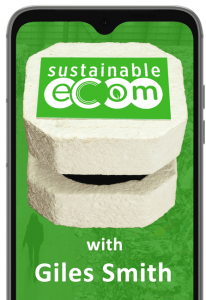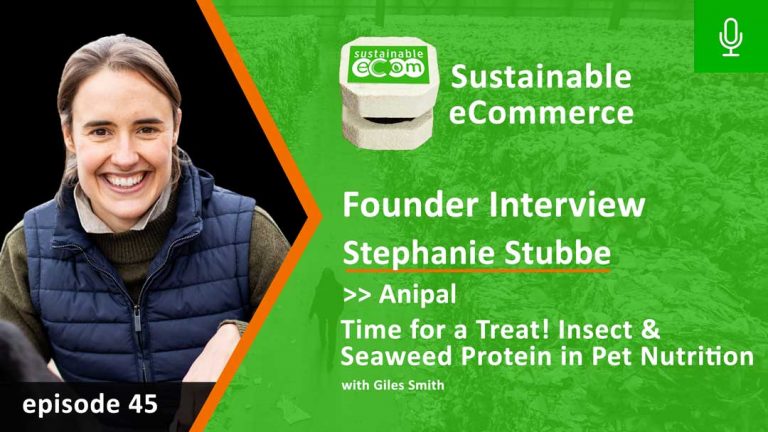Welcome to Episode 45 of the Sustainable Ecommerce Podcast!
As niche markets go, pet ownership is definitely one of the juicier ones at least if the rise of gigantic pet store chains over the past decade or so is anything to go by.
There is a lot of noise and perhaps speculation about the environmental footprint of pet ownership, focusing mostly on the plastic pollution from pet toys and accessories to alarming estimates of the carbon footprint attached to the production and shipping of pet food, specifically meat as the protein source.
There are definitely counter arguments that per food is often made from meat by products, including offal which would otherwise be sent to landfill or burned, so I don’t think we have an adequate handle the impact yet.
One thing is for sure though, as the population of pets soars, we should be looking for more sustainable alternatives, and my guest today is doing just that.
Stephanie Stubbe is the founder of Anipal, a Victorian brand pioneering the use of both seaweed protein and insect protein in dog treats.
Whether or not the estimates of environmental impact of meat-based proteins is correct, both the solutions being explored, Anipal very successfully I might add, have a many many times smaller footprint.
I think this is fascinating space that out of absolute necessity and apparent ease of production is absolutely one to watch over the coming years.
So, Whether you’re a keen dog lover or not, I hope you enjoy this deep dive into more sustainable pet food alternatives, and the degree of impact they can make as the population of pets continues to increase.
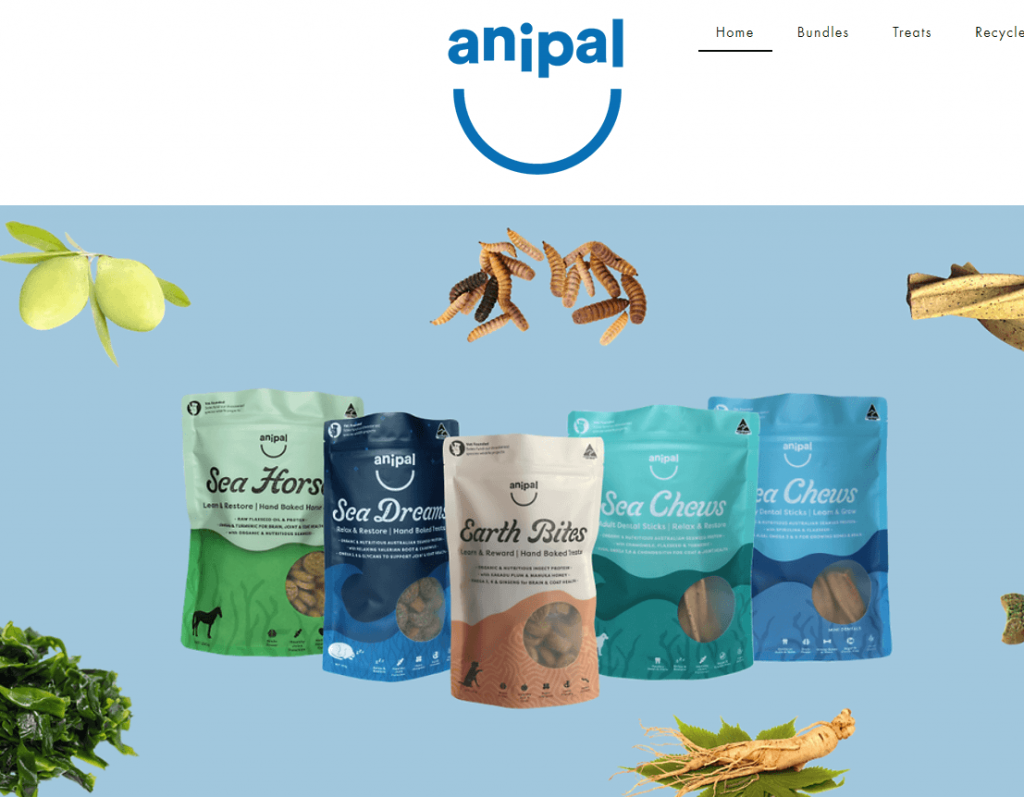
About Stephanie Stubbe
Stephanie grew up on a beef farm in rural NSW, and gained insight into the plastic problem early on in life when the Murray river would flood their paddocks and leave a huge amount of rubbish & man made debris behind. You’d also then see a lot of water birds and other animals struggling with health issues as a result of all that plastic.
Later as a clinical vet, that awareness was magnified during her time at the RSPCA, seeing just how much wildlife was being brought into the clinic as a result of plastic and pollution related issues. She also started to realise just how much single use plastic was being used in the vet industry, including product packaging.
She started Anipal by using recycled plastic in their animal leads, before then realising just how much of a pet’s pawprint was attached to their food. Recognising that the pet industry could actually help to accelerate the innovation and development of the alternative protein market, she started to explore alternative sources of protein that can be found naturally in the environment.
The pet food industry is a massive latent market, so there is a huge opportunity to both reduce the environmental impact of sourcing meat for the pet industry as well as provide a valuable supply chain for alternative protein producers.
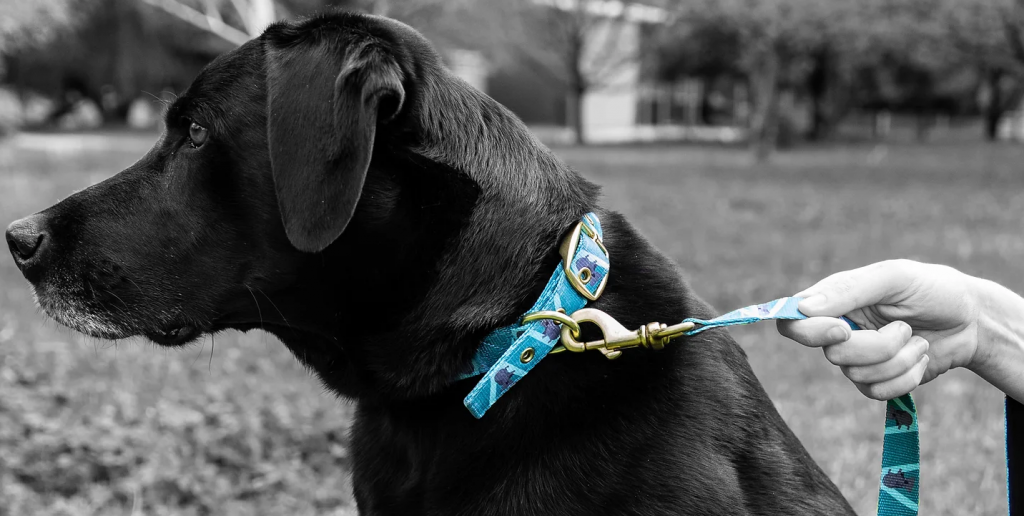
Why is insect protein so much better for the environment than meat protein?
From an agricultural perspective, the growth of insect protein uses 100% less water and about 98% less land than normal meat (particularly beef) production. The insects used to produce the protein get all the water they need from the food stock (which can be offal and other discarded protein sources).
The protein being used by Anipal is from Black Soldier Fly larvae that is grown right here in Australia. There are also growers of cricket protein in Australia that can also be used in human nutrition. Purchasing from local growers enables Anipal to have greater transparency on sourcing. By-products of insect cultivation, including the discarded husks are also being developed into organic fertiliser.
In addition, while the bulk of animal protein used in pet production is lower quality meat, there is also a lot of premium quality going into pet food, which could and should be diverted to feeding the human population. We are fast approaching a time where population growth is exceeding our ability to produce the needed protein to support it. Finding alternative sources of protein for pet food can therefore free up some of the output from the meat industry.
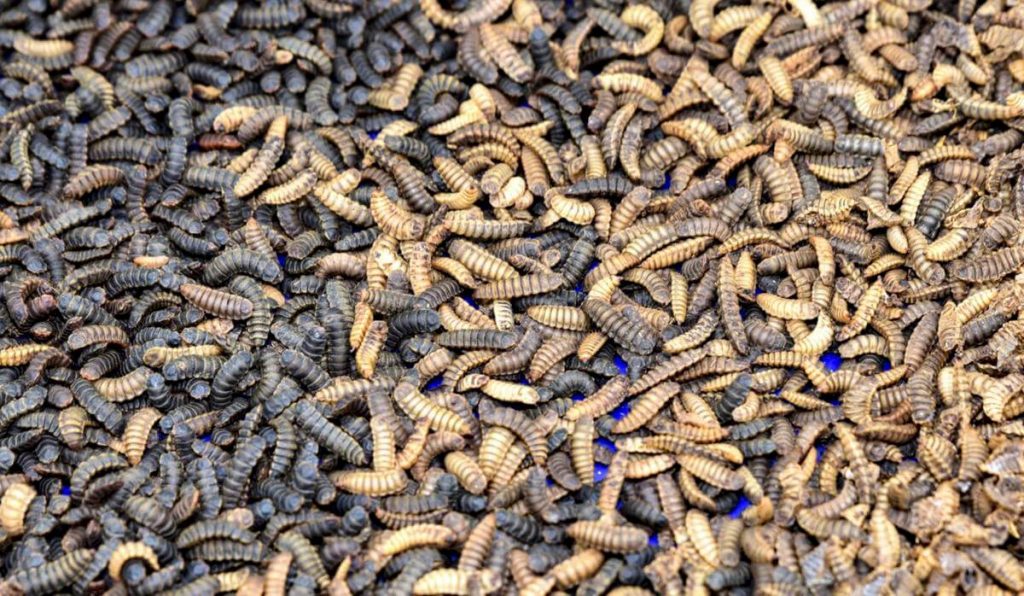
Why seaweed protein is a great alternative protein in dog food
Anipal are also using farmed seaweed in their range of nutritious dog treats. Again, they are working with innovative growers here in Australia where the seaweed is farmed in vats. Like all plants, seaweed needs CO2 to grow, so the growers are using the by-product CO2 from the brewing industry, and bubbling that through the vats to stimulate growth.
The resulting raw material is high in protein, high in Omega oils (very important for pet health, brain development and joint health), and also in trace minerals & nutrients.
It’s important to understand that dogs are omnivores. They have been domesticated for generations and developed the amylase gene, which means they can break down starches – enabling them to digest vegetable matter. Cats on the other hand are 100% carnivores and can only digest proteins that are high in Taurine.
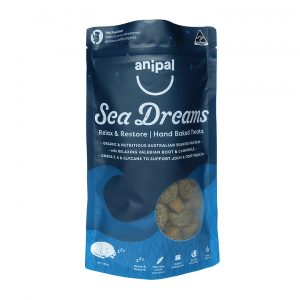
Maintaining focus on solving customer problems
Steph’s core focus as a vet, which extends into Anipal is to focus on pet health and wellness as their top priority, which naturally aligns with their customer’s priorities. The most common health issues they see in vet clinics are related to things like obesity, joint problems, allergies and anxiety. In fact, the most common allergen is meat protein, and pets that develop allergies to meat protein need an alternative protein source. Being a complete and hypo-allergenic protein, insect protein is a great alternative for pets that have dietary problems and allergies. Plus, It also has a nutty flavour that pets really like.
How are people responding to insert protein as part of pet nutrition
Stephanie has observed that about 60% of pet owners are quickly open to trying insect protein, especially when presented with the final product. 40% then need additional information to help them understand the benefits, and Steph’s training as a vet has provided her with the educational skills needed to assist with that.
But there’s a distinctive hierarchy of benefits. The top priority is always the nutritional and health benefits of any treat or food. Next most important is that the pet will enjoy eating it, after all no one wants to purchase a premium priced pet treat for them to not eat it. Lastly, but continuing to rise in importance is the sustainability angle. That’s much more important to customers now than it was a decade ago, and continues to become more important.
Pricing is also a consideration. Currently insect protein needs to be priced as a premium product, simply due to the supply economics. Supply is limited, which currently does make it more expensive to use as a base material than the cheaper meat by products, comparable or slightly cheaper than the premium cuts used by some brands.
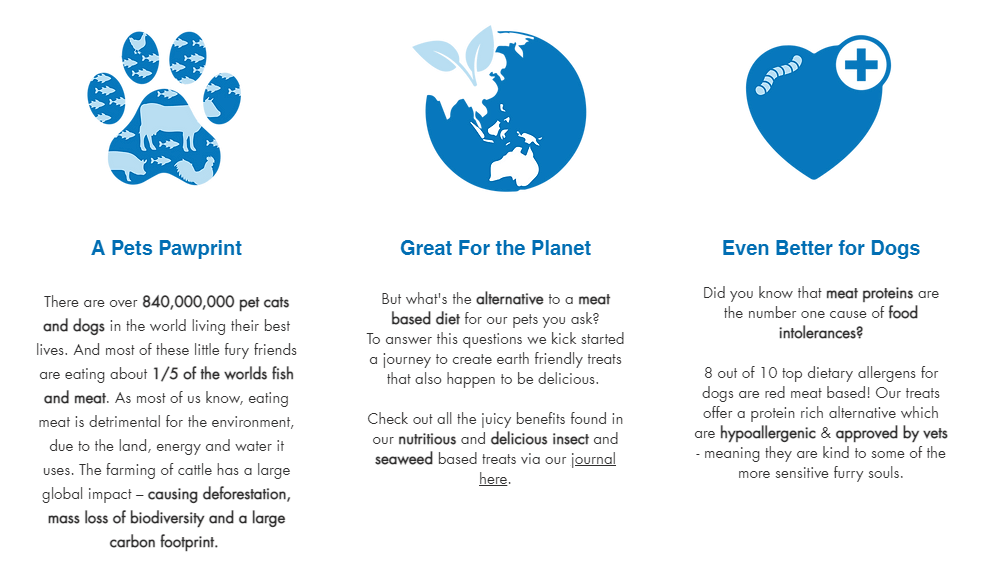
What are you doing to grow your brand?
Stephanie has focused on bootstrapping Anipal’s growth. Having the inside track to the veterinary industry, she sought early support from her network, finding a quick channel to get the products into the vet clinics and into the hands of customers through clinic recommendations. From there she has focussed on scaling out via wholesale – including pet product chains. They are now stocked in over 400 stores, and releasing into Pet Barn in a few months. With a solid and predictable income stream from that scale, she is now turning her attention to the digital channel to bring her products directly to consumers.
Top Takeouts
Firstly, I think there’s an interesting lesson in the pragmatic way Steph is building Anipal. Like many founders, myself included, she’s chosen to bootstrap her brand.
Rather than going straight to digital though, she’s been very smart in leveraging her expertise and inherent advantages as a vet to get early traction in clinics, then wholesale distribution before finally turning to her online presence. That’s allowed her to test products and get feedback from her sphere of influence which is incredibly important when bringing something genuinely new to market.
But that approach has also enabled a certainty of volume and income early on, which makes basic things like unit economics actually work, even if her volume is still tiny compared to mainstream production methods.
So if you’re an expert in your field too, perhaps this is a viable route to market for you as well.
Secondly, what an absolutely fascinating space insect protein is. As a hypoallergnic protein, an amazing alternative for furry family members with allergies, as so many seem to have. Plus, at basically 0% of the water and 98% less land required compared to meat protein, it unquestionably has a lower footprint, and has the potential to free up quality protein for human consumption as our population grows far in excess of our ability to produce food.
I for one did not realise that the insect protein growing industry had progressed so much here in Australia either, which was super encouraging.
Personally, I’ve been exploring plant-based protein meat replacements lately, and some of them are really damn good, but I must admit that I’m not yet ready to eat and insect burger. Would I buy insect protein for my dog? Well, I’ve already ordered some, and I can tell you she LOVED them!
Lastly, it was interesting to hear about some new developments in soft plastics recycling that might perhaps begin to bridge the chasm left by the collapse of redcycle. The notion of simply rolling up the soft plastic pouches and having them treated like hard plastic from your kerbside collection is an interesting one, though the problem of downstream demand for recycled content still remains.
To try out Anipal's range of sustainable dog treats, head over to https://anipal.com.au today!





